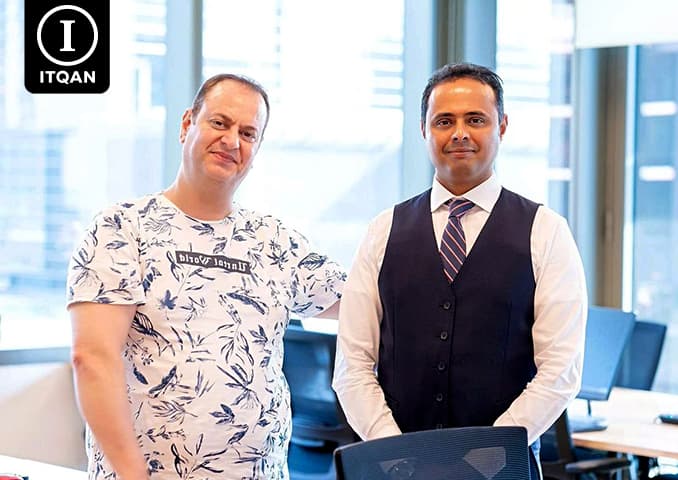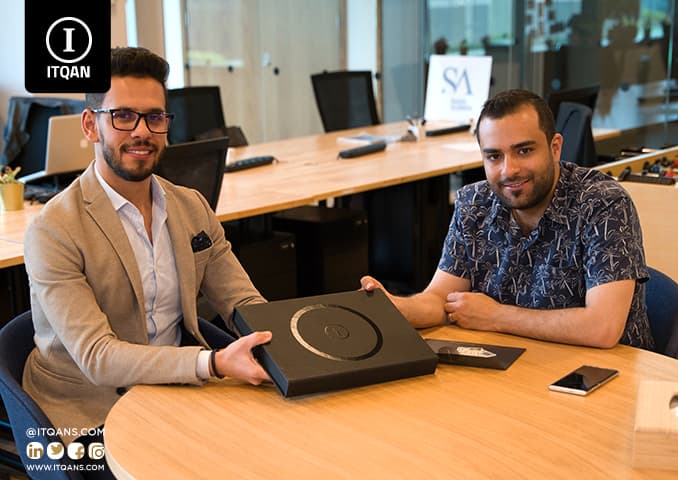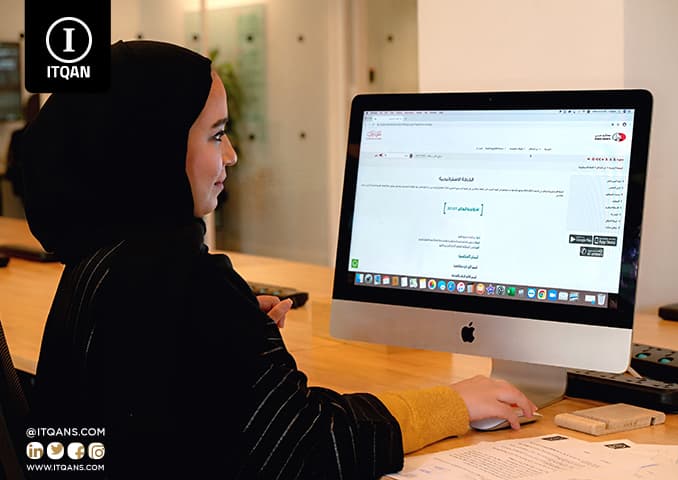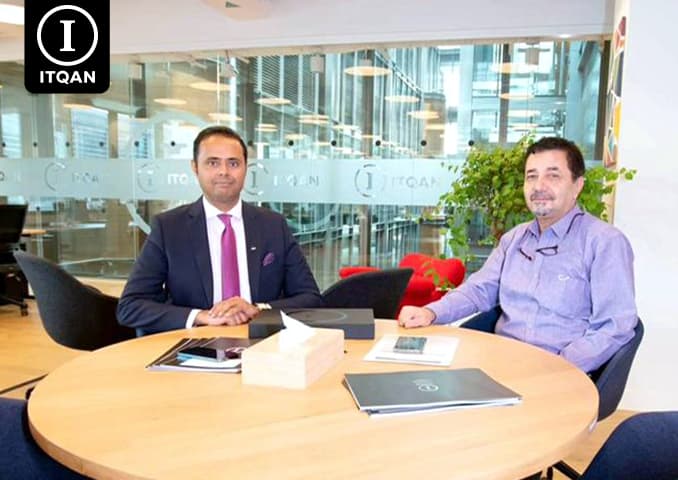Establishing companies in the Emirates Free Zone, as the Emirates is considered one of the best global markets for investment, and it also has many international free zones that are considered a global market for trade and investment. Therefore, establishing companies in the free zones of the Emirates, and the procedures for opening a company in Dubai in general to start investing in Dubai, are among the most important topics that concern the investor, whether local or foreign. Through this article, we will learn about many details related to establishing companies in the Emirates .

جدول المحتوى
ToggleEstablishing companies in the free zone
Establishing companies in the Dubai Free Zone represents an important strategic step for investors wishing to benefit from the flexible and stimulating business environment in this global economic centre. Thanks to Itqan’s experience in providing advisory and legal services, investors enjoy comprehensive support that includes all aspects of establishing a company, including commercial licensing arrangements, legal paperwork management, and accommodation and visa facilities if necessary.
Itqan Company highlights its vital role in facilitating the process of establishing companies in the Dubai Free Zone, and how it helps investors launch with confidence and full preparation in a business environment that promotes economic growth and prosperity.
Reasons to invest in the UAE
Investing in the UAE is considered an attractive option for many investors, due to several basic reasons:
- Favorable business environment: The UAE has an open investment environment full of opportunities, where companies enjoy the freedom to manage their businesses and do not impose income taxes at the federal level, with the exception of oil and gas and banks.
- Advanced infrastructure: The UAE has a modern and advanced infrastructure that includes international airports, advanced sea ports, and integrated transportation networks, which facilitates access to regional and global markets.
- Strategic location: The UAE is located in a strategic area along the Strait of Hormuz, making it a center for trade and investment between East and West.
- Economic Diversity: In addition to the oil and gas sector, the UAE offers great diversity in other economic sectors such as tourism, real estate, technology, and education, which provides multiple investment opportunities.
- Government incentives: The UAE government offers incentives and rewards to new companies and foreign investors, such as tax facilities and fast-track licensing.
- Political and security stability: The UAE enjoys high political and security stability, making it a safe environment for long-term investments.
With these factors, the UAE stands out as one of the most prominent global destinations for investors looking for profitable and sustainable investment opportunities in the Middle East.
The most important free zones in the Emirates
Among the most important free zones in the Emirates are the Dubai Free Zone and the Sharjah Free Zone. There are other free zones in the Dubai Free Zone such as Jebel Ali, in which the Emirates is establishing an international wholesale city near the Jebel Ali area.
- Jebel Ali Free Zone: Jebel Ali Free Zone in Dubai is one of the oldest and largest free zones in the Emirates. It is located a short distance from Jebel Ali Port, making it a major shipping, manufacturing and assembly centre.
- Dubai Investments District: Also known as “Dubailand”, this area offers integrated facilities for companies in sectors such as automobiles, electronic industries, technology, and logistics services.
- Sharjah New Industries Zone: It is located in the Emirate of Sharjah and focuses on light and heavy industries, and is strategically located near Khalifa Port.
- Ras Al Khaimah Industrial and Trade District: It is considered a diverse destination for companies looking for production and assembly bases in the northeast of the Emirates.
- Fujairah Free Zone: Provides a distinguished environment for small and medium-sized companies, and focuses on logistics services and manufacturing industries.
- Abu Dhabi Free Zone: It includes several areas such as the Khalifa Industrial Zone and the Electricity and Water Industrial Zone, and supports a wide range of sectors from heavy industries to logistics services.
These free zones are considered a center for innovation and economic development in the Emirates, as they provide a suitable and stimulating environment for local and international investments.
Types of companies in the Emirates
In the UAE, there are several types of companies that can be established, these are some of the main types with brief details:
| Company type | a description |
|---|---|
| Sole proprietorship | It is managed by one person who is responsible for all work and responsibilities. |
| Limited liability company | Shareholders are liable for the company’s debts only to the extent of their contributions. |
| Public joint stock company | The public can buy shares and trade them publicly, and shareholders have limited liability. |
| Private joint stock company | Its contributions are limited, not publicly tradeable, and a limited group of people participate. |
| Company in a free complex | It operates within a free zone and enjoys privileges such as tax exemptions and flexible operating rules. |
These are just the basic types, and details and requirements vary between the emirates and for each type of company.
Procedures for establishing a company in the Emirates:
The procedures for establishing a company in Dubai vary slightly depending on the type of company and the location where it is incorporated, but here are the general steps that can be included:
- Choosing the type of company: You must first choose the appropriate type of company, whether it is a sole proprietorship, a limited liability company, or a joint stock company.
- Choosing a trade name: A name for the company must be chosen that complies with local regulations and its availability must be verified.
- Identification of Shareholders and Officers: The identities of the shareholders, directors, and executive officers of the company must be identified.
- Applying for licenses and permits: You must apply to obtain the necessary licenses from the local authorities, and these licenses may vary depending on the company’s activity and place of establishment.
- Preparation of legal documents: Incorporation requires the preparation of legal documents such as the company’s articles of association and partner agreements, if any.
- Payment of registration and establishment fees: The fees required for registration and establishment must be paid depending on the type, size and location of the company.
- Registration in the Commercial Registry: Once the previous steps are completed, the company is registered in the local commercial registry.
- Obtaining work and residency permits: Managers and key employees are required to obtain work and residency permits if they are residents of the UAE.
- Opening a bank account: A bank account must be opened in the name of the company to manage financial operations and commercial transactions.
These steps represent a general model, and may require additional procedures or modifications depending on individual circumstances and legal requirements in the UAE.
Costs of establishing companies in the Emirates and free zones:
The costs of establishing a company in the UAE vary based on several factors such as the type of company, place of establishment, and additional services that you may need. Here’s an overview of the main costs:
- Company registration fees: These fees consist of the fees for registering the company in the commercial registry and vary according to the type of company (such as a sole proprietorship or limited liability company).
- Fees for legal advisors and lawyers: You may need the services of a legal advisor or lawyer to prepare the necessary legal documents, and the costs of these services vary depending on the service provider.
- Licenses and permits fees: You may need to obtain licenses specific to the company’s activity, such as industrial licenses or commercial licenses, and the costs of obtaining them vary depending on the company’s activity.
- Government administration fees: These fees include processing and administration fees for submitting applications for licenses and permits at the relevant authorities.
- Contract and articles of association costs: You may need to prepare contracts and articles of association for the company, and the costs for this vary depending on the size and complexity of the company.
- Bank account opening costs: These costs include account opening fees and the minimum deposit required, and may vary depending on the chosen bank.
- Office rental costs: If the company needs an office, you will have the costs of renting and securing the office.
- Additional legal and management consulting costs: You may need additional third-party consulting or management services to help you manage the day-to-day operations of the company.
These costs can vary greatly depending on the type of company and the free zone you choose, so it is always preferable to consult specialized consultants such as Itqan Company to obtain an accurate estimate of the expected costs before embarking on the incorporation process.

Itqan Company services in establishing companies in the Emirates
Itqan Company provides a wide range of services for establishing companies in the Emirates, including but not limited to:
- Legal and regulatory advice: Itqan provides comprehensive legal advice on procedures for establishing companies in the Emirates, including choosing the appropriate company type, stock distribution arrangements, and the necessary legal procedures.
- Licensing and Permits Arrangements: Itqan helps its clients obtain the necessary business licenses and permits from local authorities, including business licenses, commercial licenses, etc.
- Preparing legal documents: Itqan prepares the legal documents necessary to establish companies, such as the articles of association, partner agreements, and other related agreements.
- Project Management Services: Itqan provides project management services to accompany clients through all stages of the establishment process, including following up on procedures and resolving potential problems.
- Institutional support services: Itqan provides institutional support services such as opening bank accounts, providing an address for the company, and providing office management services.
- Tax and financial consulting: Itqan provides tax and financial consulting to new companies, which helps achieve the appropriate financial balance and comply with tax laws.
Thanks to these services, Itqan helps clients establish their companies smoothly and in compliance with legal and regulatory requirements in the UAE.
At the conclusion of this article, it can be said that establishing companies in free zones in the UAE represents a distinct investment opportunity that attracts investors from all over the world. These areas provide a favorable and stimulating business environment, with advanced infrastructure and attractive legal and tax incentives. Thanks to the facilities provided by the UAE government and the support of specialized consulting companies such as Itqan Company, businessmen and investors can find in these free zones the ideal environment to start their projects and achieve sustainable and profitable success.
Frequently asked questions about establishing companies in free zones
What are the expected costs of establishing a company in a free zone in the UAE?
Costs vary according to the type of company and free zone requirements, and include registration fees, legal consultation fees, and government administration fees, in addition to the costs of necessary licenses and insurances.
What are the basic licenses that must be obtained to operate a company in a free zone?
Licenses vary depending on the company’s activity, and usually include business licenses, commercial activity licenses, and building permits if the area includes industrial facilities.
What are the main benefits of establishing companies in free zones?
Benefits include tax and customs incentives, access to an international market, flexible legislation, and advanced infrastructure that facilitates companies’ operations.
What types of companies can be established in free zones?
A variety of companies can be established in free zones, such as limited liability companies, sole proprietorships, joint stock companies, and overseas branches of foreign companies.


















